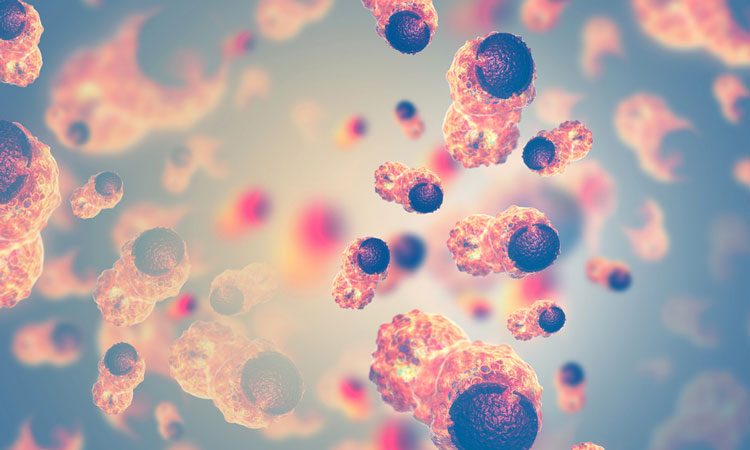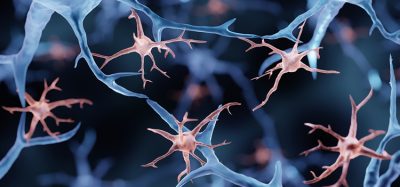Targeting the growth signals of ‘undruggable’ cancers
Posted: 14 August 2018 | Iqra Farooq (Drug Target Review) | No comments yet
Dr Bivona and his team showed that the growth of multiple cancers slowed by suppressing the signalling pathway using an experimental compound…


The RAS/MAP kinase (MAPK) signalling pathway has previously been labelled by some scientists as ‘undruggable’, but a team of researchers may have identified a method of successfully decoupling the pathway from external growth signals.
Defects in this signalling pathway are involved in around 50 percent of human cancers.
Researchers at UC San Francisco and Revolution Medicines found an experimental compound that interferes with the first steps of the RAS/MAPK pathway and was shown to dramatically reduce cancer growth in pancreatic, skin and lung cancer cell lines, along with human lung cancer grown in animal models. The drug candidate has been called RMC-4630, and Revolution Medicine aims to advance the approach to clinical trials.
Biomarkers are redefining how precision therapies are discovered, validated and delivered.
This exclusive expert-led report reveals how leading teams are using biomarker science to drive faster insights, cleaner data and more targeted treatments – from discovery to diagnostics.
Inside the report:
- How leading organisations are reshaping strategy with biomarker-led approaches
- Better tools for real-time decision-making – turning complex data into faster insights
- Global standardisation and assay sensitivity – what it takes to scale across networks
Discover how biomarker science is addressing the biggest hurdles in drug discovery, translational research and precision medicine – access your free copy today
“RAS/MAPK is one of the most important cancer signalling pathways, but so far most attempts to develop targeted drugs against this pathway have ended in failure, which has led some people to start calling it a ‘Holy Grail’ of cancer therapy,” said study senior author Dr Trever Bivona, a UCSF Health clinical oncologist. “Now, for the first time, we think we have a general strategy that could work against a subset of RAS/MAPK-driven cancers.”
The targeted pathway begins with an ‘upstream’ growth signal, actioned via a receptor protein on the surface of the cell. This activates RAS within the cell which triggers a sequence of events that directs ‘downstream’ growth-promoting actions in the nucleus. Regulatory proteins simultaneously keep the growth through the signalling pathway within a healthy range.
Mutations in one or more of these steps can send cellular growth into ‘overdrive’, thus leading to tumour formation. Most attempts at targeting these individual defects have failed, normally because the patient’s cancer developed too quickly, or because the pharmacology of affected proteins makes them too difficult to drug.
In contrast to previous studies, more recent research has shown that some cancer-linked mutations make the associated protein hypersensitive to ordinary growth signals, and as such, go on to form tumours.
Dr Bivona and his team demonstrated that the growth of multiple cancers was slowed by suppressing this signalling pathway using an experimental compound that targets an enzyme called SHP2.
Working with a biotech company, Revolution Medicines, which identified compound RMC-4550 that may inhibit SHP2 signalling. Working together, the team tested the compound on against a variety of additional human cancers, identifying that the experimental compound effectively decouples the entire RAS/MAPK pathway from ordinary growth signals.
After testing the molecule on several dozen cancer cell lines, the team found that the compound inhibited cancer growth in different types of lung, colorectal, pancreatic and melanoma cancer cell lines, and even killed cancer cells in some cases.
“We were able to demonstrate that this compound successfully suppressed the RAS pathway in the rodent tumour models and that this not only slowed tumour growth but even led to tumour regression in some cases, with minimal side effects in the animals,” Dr Bivona said. “This was very exciting to me because it meant that the compound was not just arresting cell growth but actually killing cancer cells.”
The results now await human safety and efficacy trials, which Revolution Medicine plans to launch using a small molecule inhibitor of SHP2 called RMC-4630, which is designed to have a good profile for use in patients.
The study was published in Nature Cell Biology.
Related topics
Disease Research, Drug Discovery, Drug Targets, Research & Development
Related conditions
Cancer
Related organisations
Revolution Medicines, UC San Francisco
Related people
Dr Trever Bivona








